Confederate Truths: Documents of the Confederate & Neo-Confederate Tradition from 1787 to the Present.
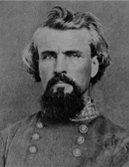

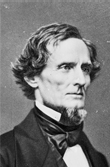
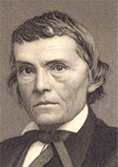

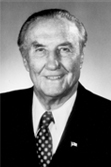
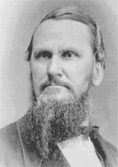
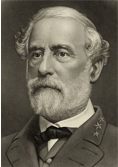
Speech of Jefferson Davis before the Mississippi Legislature, Nov. 16, 1858,where he advocates secession if an abolitionist is elected president.
Speech of Jefferson Davis before the Mississippi Legislature, Nov. 16, 1858
"Speech of Jefferson Davis before the Mississippi Legislature. November 16, 1858." from Jefferson Davis Constitutionalist: His Letters, Papers, and Speeches, collected and edited by Dunbar Rowland, Volume III, pages 339 – 360, printed for the Mississippi Department of Archives and History, Jackson, Mississippi, 1923, excerpt page 356-8, defending slavery and advocating secession if an abolitionist becomes president. The "dangerously powerful man" is Senator Seward, an opponent of slavery.
It seems now to be probable that the Abolitionists and their allies will have control of the next House of Representatives, and it may be well inferred from their past course that the will attempt legislature both injurious and offensive to the south. I have an abiding faith that any law which violates our constitutional rights, will be met with a veto by the present Executive. – But should the next House of Representatives be such as would elect an Abolition President, we may expect that the election will be so conducted as probably to defeat a choice by the people and devolve the election upon the House.
Whether by the House or by the people, if an Abolitionist be chosen president of the United States, you will have presented to you the question of whether you will permit the government to pass into the hands of your avowed and implacable enemies. Withoutt pausing for your answer, I will state my own position to be that such a result would be a species of revolution by which the purposes of the Government would be destroyed and the observances of its mere forms entitled to no respect.
In that event, in such manner as should be most expedient, I should deem it your duty to provide for your safety outside of a Union with those how have already shown the will, and would have acquired the power, to deprive you of your birthright and to reduce you to worse than the colonial dependence of your fathers.
The master mind of the so-called Republican party, Senator Seward, has in a recent speech at Rochester, announced the purpose of his party to dislodge the Democracy from the possession of the federal Government, and assigns as a reason the friendship of that party for what he denominates the slave system. He declares the Union between the States having slave labor and free labor to be incompatible, and announces that one or the other must disappear. He even asserts that it was the purpose of the framers of the Government to destroy slave property, and cities as evidence of it, the provision for an amendment of the Constitution. He seeks to alarm his auditors by assuring them of the purpose on the part of the South and the Democratic to force slavery upon all the States of the Union. Absurd as all this may seem to you, and incredulous as you may be of its acceptance by any intelligent portion of the citizens of the United States, I have reason to believe that it has been inculcated to no small extent in the Northern mind.
It requires but a cursory examination of the Constitution of the United States; but a partial knowledge of its history and of the motives of the men who formed it, to see how utterly fallacious it is to ascribe to them the purpose of interfering with the domestic institutions of any of the States. But if a disrespect for that instrument, a fanatical disregard of its purposes, should ever induce a majority, however large, to seek by amending the Constitution, to pervert it from its original object, and to deprive you of the quality which your fathers bequeathed to you, I say let the star of Mississippi be snatched from the constellation to shine by its inherent light, if it must be so, through all the storms and clouds of war.
The same dangerously powerful man describes the institution of slavery as degrading to labor, as intolerant and inhuman, and says the white laborer among us is not enslaved only because he cannot yet be reduced to bondage. Where he learned his lesson, I am at a loss to imagine; certainly not by observation, for you all know that by interest, if not by higher motive, slave labor bears to capital as kind a relation as can exist between them anywhere; that it removes from us all that controversy between the laborer and the capitalist, which has filled Europe with starving millions and made their poorhouses an onerous charge. You too know, that among us, white men have an equality resulting form a presence of a lower caste, which cannot exist where white men fill the position here occupied by the servile race. The mechanic who comes among us, employing the less intellectual labor of the African, takes the position which only a master-workman occupies where all the mechanics are white, and therefore it is that our mechanics hold their position of absolute equality among us.
I say to you here as I have said to the Democracy of New York, if it should ever come to pass that the Constitution shall be perverted to the destruction of our rights so that we shall have the mere right as a feeble minority unprotected by the barrier of the Constitution to give an ineffectual negative vote in the Halls of Congress, we shall then bear to the federal government the relation our colonial fathers did to the British crown, and if we are worthy of our lineage we will in that event redeem our rights even if it be through the process of revolution. And it gratifies me to be enabled to say that no portion of the speech to which I have referred was received with more marked approbation by the Democracy there assembled than the sentiment which has just been cited. I am happy also to state that during the past summer I heard in many places, what previously I had only heard from the late President Pierce, the declaration that whenever a Northern army should be assembled to march for the subjugation of the South, they would have a battle to fight at home before they passed the limits of their own State, and one in which our friends claim that the victory will at least be doubtful.
Now, as in 1851, I hold separation from the Union by the State of Mississippi to be the last remedy—the final alternative. In the language of the venerated Calhoun I consider the disruption of the Union as a great though not the greatest calamity. I would cling tenaciously to our constitutional Government, seeing as I do in the fraternal Union of equal States the benefit to all and the fulfillment of that high destiny which our fathers hoped for and left it for their sons to attain. I love the flag of my country with even more than a filial affection. Mississippi gave me in my boyhood to her military .service. For many of the best years of my life I have followed that flag and upheld it on fields where if I had fallen it might have been claimed as my winding sheet. When I have seen it surrounded by the flags of foreign countries, the pulsations of my heart have beat quicker with every breeze which displayed its honored stripes and brilliant constellation. I have looked with veneration on those stripes as recording the original size of our political family and with pride upon that constellation as marking the family's growth; I glory in the position which Mississippi's star holds in the group; but sooner than see its lustre dimmed—sooner than see it degraded from its present equality—would tear it from its place to be set even on the perilous ridge of battle as a sign round which Mississippi's best and bravest should gather to the harvest-home of death.